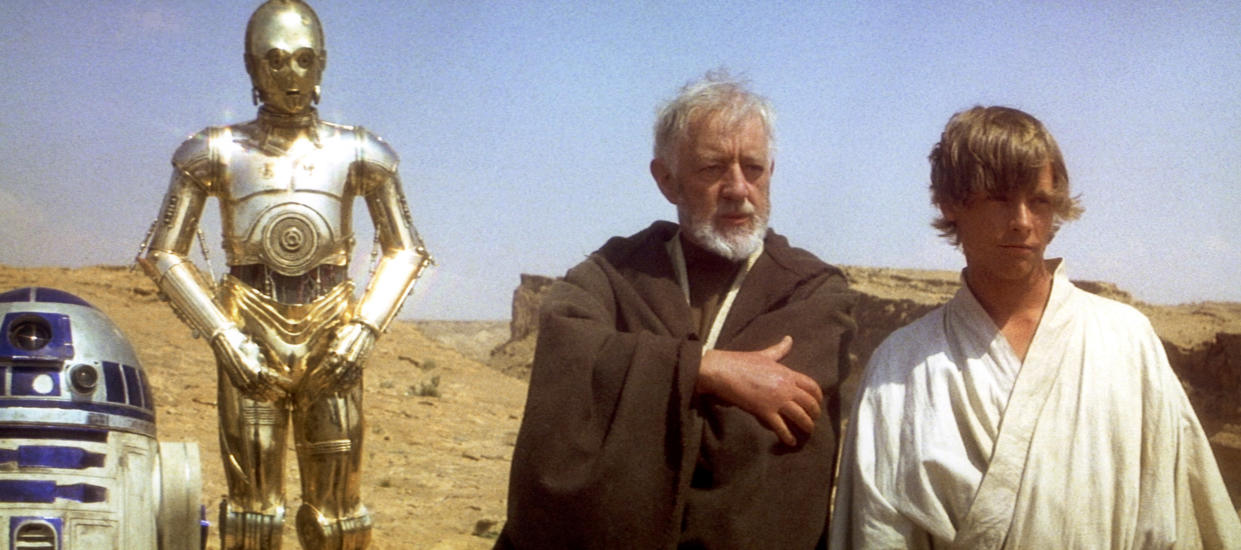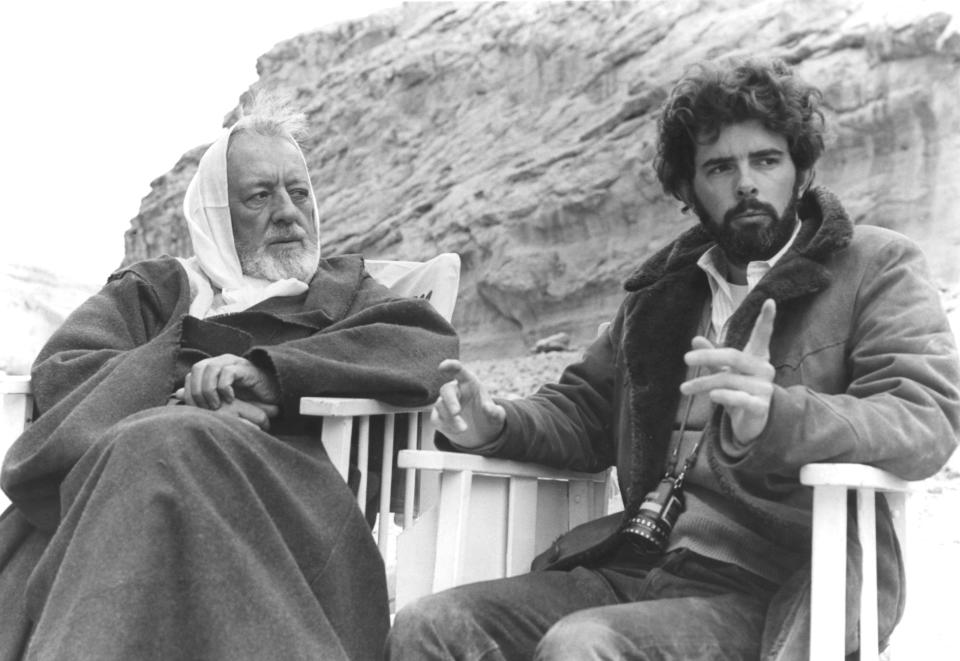Lucasfilm expert Phil Szostak debunks long-standing 'Star Wars' myths

When it comes to the original Star Wars trilogy, it can often feel like there’s very little left to learn about the production of the three films masterminded by George Lucas.
There are countless books and documentaries - some official, many unofficial - on the genesis of 1977’s A New Hope, 1980’s Empire Strikes Back, and 1983’s Return of the Jedi, that cover every aspect of the productions in exhaustive detail.
However, as Lucasfilm creative art manager Phil Szostak has been proving on his Twitter account, many Star Wars details that we take as “facts” are actually untrue: many of the truths we cling to depend greatly on our own point of view.
As master Yoda advises: sometimes we must unlearn what we have learned.
For example: There’s an oft-repeated story that the name Darth Vader was chosen by George Lucas because it means “Dark Father” in German (or sometimes Dutch), foreshadowing the revelations on Bespin in Episode V.
As the author of The Art of Star Wars book series explains below, this “fact” is actually total nonsense.
Star Wars Mythbusters
Darth Vader is from the German (or Dutch) for “Dark Father”
1. “General Vader/Imperial Commander” appears on an early-1974 list of potential character names by George Lucas
(screenshots from @jwrinzler’s essential Making of #StarWars book series) pic.twitter.com/G1ohdTQLjI— Phil Szostak (@PhilSzostak) August 3, 2019
2. “Darth Vader, a tall, grim-looking general” appears in the May 1974 The #StarWars rough draft
3. Darth Vader is not Luke Skywalker’s father until the April 1, 1978 second draft of #EmpireStrikesBack
4. “Darth” doesn’t mean anything in Dutch or German
MYTH BUSTED pic.twitter.com/UaxMKKMwtK— Phil Szostak (@PhilSzostak) August 3, 2019
Since 3 August, Szostak has been updating a Twitter thread of linked messages on the shared theme of “Star Wars Mythbusters”, covering a wide range of long-standing misconceptions about the original trilogy.
Read more: George Lucas reveals favourite Star Wars character
The author, whose next book The Art of Star Wars: The Rise of Skywalker will be released on 20 December, has tackled a wide range of topics including the origin of Chewbacca’s name (it’s not Russian), the reason for Mark Hamill’s facial scarring in Empire Strikes Back (it really was written in following the actor’s car crash), and he’s cleared up whether the Millennium Falcon was designed to look like a half-eaten burger (it wasn’t).

However our favourite revelation confirms that George Lucas really was making up the original trilogy as he went along, and the idea that the filmmaker had the arc of the three films (or even nine) mapped out in detail, just isn’t true. The whole Vader is Luke’s father plot point was never part of the original story.
In 1977’s Star Wars, Obi-Wan Kenobi (Sir Alec Guinness) tells Luke Skywalker (Mark Hamill) that Darth Vader “betrayed and murdered” his father Anakin. However, in 1980’s Empire Strikes Back, Darth Vader reveals to Luke that he is Anakin.
Star Wars Mythbusters
At the time of #StarWars’ release in 1977, Obi-Wan Kenobi wasn’t lying to Luke Skywalker about his father because Anakin Skywalker and Darth Vader were different people pic.twitter.com/K2Y1guLEg4— Phil Szostak (@PhilSzostak) August 12, 2019
In 1983’s Return of the Jedi Obi-Wan’s Force ghost retcons the original lie telling Luke: “Your father was seduced by the dark side of the Force. He ceased to be Anakin Skywalker and became Darth Vader. When that happened, the good man who was your father was destroyed. So what I told you was true, from a certain point of view.”
Read more: Everything we know about Star Wars 9
But, according to Szostak, despite Guinness’ measured performance that suggests a hint of hesitation before Obi-Wan tells the “lie”, when that scene on Tatooine was filmed in 1976, Anakin Skywalker really HAD been murdered by Darth Vader, because they were two different people at the time.
1. In the August 1975 third draft of “The #StarWars”, Kenobi explains to Luke Starkiller that his father Annikin was killed at the “Battle of Condawn”.
2. The backstory to Lucas’ January 1978 fourth draft is “about Ben & Luke’s father & Vader, when they are young Jedi Knights”. pic.twitter.com/cMWwESZsxY— Phil Szostak (@PhilSzostak) August 12, 2019
3. In August 1977, after the release of #StarWars, Lucas stated that Vader massacred the Jedi but Kenobi and Luke’s father Annikin survived.
4. Darth Vader wasn’t Luke’s father until the second draft of #EmpireStrikesBack in April 1978.
MYTH CONFIRMED pic.twitter.com/kerSMZFgTG— Phil Szostak (@PhilSzostak) August 12, 2019
As Szostak explains, it was only in April 1978 - a year after the first film’s release - while Lucas was writing the second draft of the script that would eventually become Star Wars: Episode V - The Empire Strikes Back, that Vader and Anakin became the same person.
So what Obi-Wan told Luke about his father on Tatooine was objectively true... until the certain point of view was changed later on.
"Luke, you're going to find that many of the truths we cling to depend greatly on our own point of view" - Obi-Wan was right all along.
Star Wars: The Rise of Skywalker, the culmination of the nine-film Skywalker saga, hits U.K. cinemas on 19 December.

 Yahoo Movies
Yahoo Movies 

